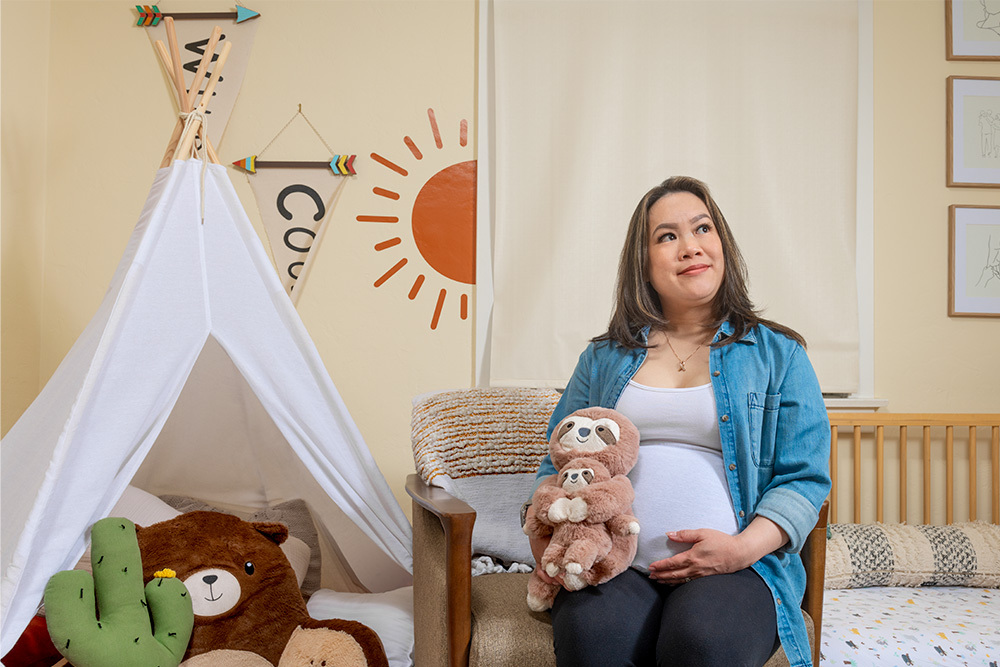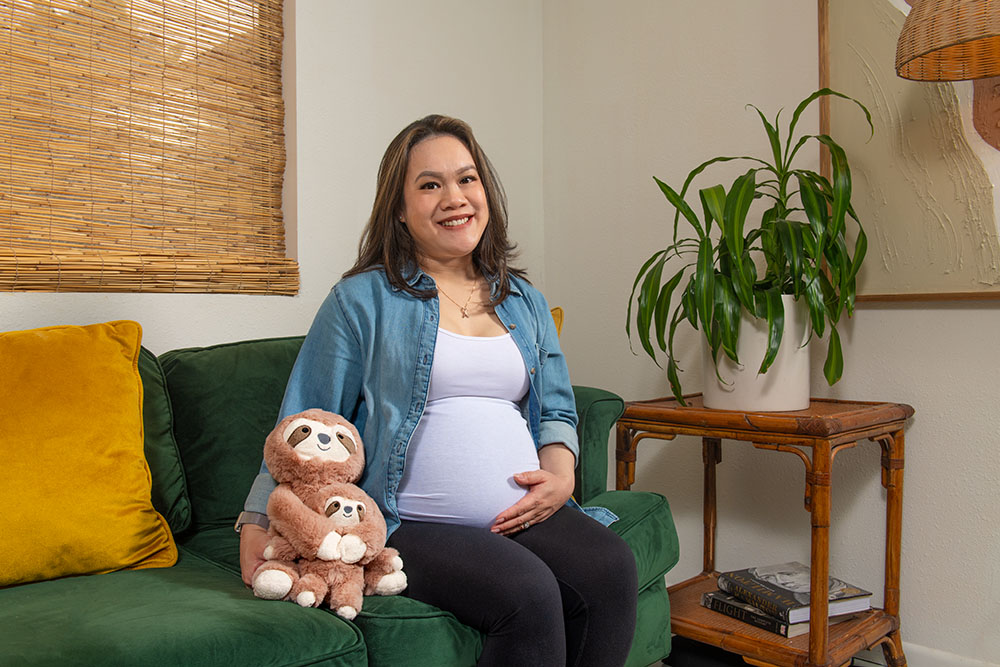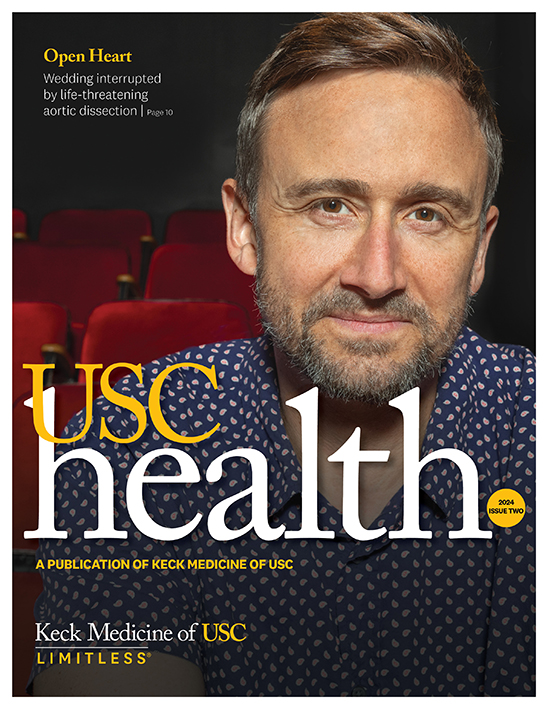
By advocating for herself and working with an expert team at USC Verdugo Hills Hospital, Jocelyn Aguilar has a new outlook — and a new baby — after breast cancer.
Jocelyn Aguilar is a breast cancer survivor who recently welcomed her second child into the world, thanks to a mammogram that first caught her disease three years ago.
Her grandmother and two aunts had battled breast cancer. While doctors look to the cancer histories of first-degree relatives — such as a sibling or mother — as a guideline to advise a mammogram before age 40, Jocelyn asked to be screened at 37.
“A mammogram is the gold-standard method for imaging the breast, and it’s the best way to find the earliest, smallest cancer,” says Maria Nelson, MD, a breast surgeon at Keck Medicine of USC.
Medical organizations, including the American Cancer Society, the U.S. Preventive Services Task Force and the American College of Obstetricians and Gynecologists, each have slightly different recommendations for when to start breast cancer screenings (many groups say women with average risk should begin annually at 40).
Still, Jocelyn’s instinct proved lifesaving. In October 2019, despite having no symptoms, the South Pasadena resident was diagnosed with Stage 1 breast cancer.
She was also raising a young daughter on her own. “If anything were to happen to me, what would happen to her?” Jocelyn says.
Under the guidance of Dr. Nelson and an expert team at USC Verdugo Hills Hospital, which is part of Keck Medicine, Jocelyn received personalized, team-based care. And she had the unique experience of being a patient in the same place where she works as a surgical nurse.
Highly coordinated breast cancer treatment
Surgery is the mainstay for early-stage breast cancer, but most patients also need some combination of radiation, chemotherapy and hormone therapy. They may choose a lumpectomy (surgical removal of cancerous tissue) or a mastectomy, which removes the entire breast.
Jocelyn wanted a double mastectomy. “I know that even if you beat it, cancer can come back,” she says. “I’ve seen this happen in my family. I wanted to decrease that chance as much as possible.”
Research has shown that treating early-stage breast cancer with mastectomies versus lumpectomies plus radiation results in equivalent survival, says Dr. Nelson, who praised Jocelyn’s resolve throughout her cancer journey.
“Jocelyn was a dream patient,” says Dr. Nelson, who also removed several of Jocelyn’s lymph nodes that had been flagged as areas of concern and performed the breast reconstruction. “She was very pragmatic. Her attitude was, ‘I’ll do what needs to be done.’”
Jocelyn received physical and occupational therapy for her arms and chest, as well as a range of holistic services to support her recovery.
“There was a nurse coordinator who connected me with a social worker, a fertility specialist, a psychiatrist and a dietitian,” Jocelyn says, praising USC-VHH teams for “really thinking ahead about what kind of help you’re going to need.”
For Jocelyn, a 20-year employee of the hospital, the process was highly personal.
“It was very sweet having the people I worked and trained with care for me,” she says.
Every patient can expect a similar experience. “USC Verdugo Hills has a community, family-type atmosphere,” Dr. Nelson says. “And patients who need higher levels of care have access to the expertise of Keck Medicine and its physicians and specialists.”
A mammogram is the gold-standard method for imaging the breast, and it’s the best way to find the earliest, smallest cancer.
Maria Nelson, MD, breast surgeon, Keck Medicine of USC
Pregnancy following mastectomy and hormone-blocking medication
After her surgery, Jocelyn completed four rounds of chemotherapy at USC Norris Comprehensive Cancer Center, which is also part of Keck Medicine. She was declared cancer-free in March 2020.
The news was bittersweet because Jocelyn’s father passed away from cancer several weeks later. COVID-19 lockdowns had also begun, adding more uncertainty to her life.
Soon after, Jocelyn met the man who would become her partner, whom she describes as “an angel” and “my ray of sunshine.”
As part of her follow-up care, Jocelyn returned to USC-VHH every three to six months for manual breast exams and visits with her oncologist, her OB/GYN, and Dr. Nelson. She also took a hormone-blocking medication designed to help prevent cancer recurrence.

But Jocelyn and her partner wanted to grow their family. In February 2022, her care team gave the OK to go off the medication so she could conceive.
“We made sure the risks were very low before trying to get pregnant,” Jocelyn says. “After I stopped the medication, my doctors asked me to come in even more frequently for check-ups.”
Despite Jocelyn’s challenges, she chooses to focus on joy.
“I just kept telling myself there’s a reason this happened,” Jocelyn says. “It’s OK to be sad some days, and it’s OK to be angry and cry. But I think having a positive outlook really helped.”
Jocelyn, now 40, feels blessed to support friends and coworkers facing breast cancer. She wants others to know the importance of knowing their family history and listening to their body by speaking up if they suspect any potential sign or symptom of the disease.
Topics


